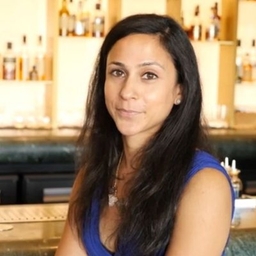
Saabira Chaudhuri
WSJ consumer goods reporter, author of CONSUMED: How Big Brands Got Us Hooked on Plastic
Articles
-
2 weeks ago |
hydrocarbonprocessing.com | Saabira Chaudhuri
By SAABIRA CHAUDHURIWilliams Cos. and Boardwalk Pipeline Partners unveiled plans to form a joint venture that would develop a pipeline project to transport natural gas liquids from the Marcellus and Utica shale plays to the petrochemical and export complex on the US Gulf Coast and the petrochemical market in the Northeast US. The proposed "Bluegrass Pipeline" design would provide producers with 200,000 bpd of mixed NGLs take-away capacity in Ohio, West Virginia and Pennsylvania.
-
4 weeks ago |
htsyndication.com | Saabira Chaudhuri
Nepal, May 31 -- The following is an excerpt from Saabira Chaudhuri's Consumed: How Big Brands Got Us Hooked on Plastic published by Harper Collins. In 2001, the Lucknow Times published an explosive article quoting a cow shelter owner who said 100 cows a day were dying from eating plastic bags in Lucknow alone. 'The affected animal will have a skeletal body but abnormally bloated stomach.
-
4 weeks ago |
kathmandupost.com | Saabira Chaudhuri
The following is an excerpt from Saabira Chaudhuri’s Consumed: How Big Brands Got Us Hooked on Plastic published by Harper Collins. In 2001, the Lucknow Times published an explosive article quoting a cow shelter owner who said 100 cows a day were dying from eating plastic bags in Lucknow alone. ‘The affected animal will have a skeletal body but abnormally bloated stomach. It will very eagerly wobble to the trough but would only sniff at the fodder, unable to eat anything,’ wrote the reporter.
-
1 month ago |
scroll.in | Saabira Chaudhuri
Consumer goods companies in the West had occasionally used sachets to entice consumers to try new shampoos and laundry detergents. But it was in emerging markets like India that companies realised the full potential of the plastic sachet. As a mainstream, everyday package, the sachet unlocked enormous multi-billion-dollar markets that had long been out of reach, promising a rush of new growth, courtesy of some of the world’s poorest people, just as sales in developed markets started to slow.
-
Jan 16, 2025 |
jp.wsj.com | Saabira Chaudhuri
When Rob Masters listed 400 barrels of two-year-old bourbon for sale online at $900 apiece, he expected them to be gone within days. Eight months later the barrels are still there. “We aren’t even getting a sniff,” said Masters, head distiller at The Family Jones distillery in Denver. Just two years ago Masters could rake in $2,000 for similar barrels. “Back then two phone calls and I could have them gone,” he said.
Try JournoFinder For Free
Search and contact over 1M+ journalist profiles, browse 100M+ articles, and unlock powerful PR tools.
Start Your 7-Day Free Trial →Coverage map
X (formerly Twitter)
- Followers
- 3K
- Tweets
- 1K
- DMs Open
- No

RT @HarperCollinsIN: In Consumed: How Big Brands Got Us Hooked on Plastic, @SaabiraC explores how global giants like Coca-Cola, McDonald’s,…

RT @outlookbusiness: .@SaabiraC, the author of Consumed: How Big Brands Got Us Hooked on Plastic talks about how corporations didn’t just r…

RT @chintanwriting: On World Environment Day, here's my review of @SaabiraC's book Consumed: How Big Brands Got Us Hooked on Plastic for @b…
